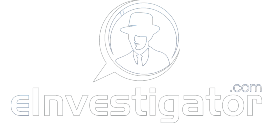For private investigators specializing in financial investigations, it is important to have a solid understanding of banking and financial products and services. Following is an explanation of various banking and financial products:
List of Banking and Financial Products and Services
ATM Cards
ATM stands for Automated Teller Machine. An ATM card is a plastic card that allows the holder to withdraw cash from ATMs. Also, an ATM card can be used for other purposes. For example, the machine can check account information, make deposits, and transfer money between accounts.
Bond
A bond is a type of fixed-income investment. With bonds, investors loan money to an entity, such as a local government or corporation, in return for interest.
Certificate of Deposit (CD)
A certificate of deposit, commonly known as a CD, is a savings investment with a fixed maturity and a specific interest rate. CDs are issued in any amount. CDs are generally viewed as a conservative investment and carry minimal risk.
Checking Account
With a checking account, physical paper or electronic checks are used to withdraw money from a bank account. Checks may be used for various financial purposes, such as paying bills, purchasing products and services, sending money to others, and other common uses. Bank checks can also transfer money to other financial institutions’ accounts. Bank checking accounts provide quick, convenient, and frequent access to the money in the bank account. Typically, deposits can be made into the checking account as often as you choose and may be withdrawn at any time. Most financial institutions allow you to withdraw or deposit funds at an automated teller machine (ATM) or to pay for purchases at stores with an ATM or Debit card.
Credit Cards
Credit cards are among the most common banking and financial products and services. A credit card is a small plastic card used to purchase goods and services on credit. Banks and financial services companies charge interest on the unpaid credit card balance.
Debit Card
A debit card is a plastic or metal card used to make purchases. The card is linked to a checking, savings, or investment account. When a purchase is made, funds are withdrawn from the account electronically.
Home Equity Loan
A home equity loan is a second mortgage that allows you to borrow against the equity in your home. It’s often used for major expenses like home renovations, education, or medical bills.
Interest-Bearing Checking Accounts
Some checking accounts pay interest; others do not. A regular checking account, also called a demand deposit account – does not pay interest, whereas a negotiable order of withdrawal (NOW) account does. Financial Institutions may impose fees on checking accounts besides a charge for the checks you order. Fees vary among institutions. Some institutions charge maintenance or a flat monthly fee regardless of the balance in your account.
Other institutions charge a monthly fee if the minimum balance in your account drops below a certain amount any day during the month or if the average balance drops below the specified amount. Some charge a fee for every transaction, such as for each check you write or each withdrawal you make at an ATM. Many institutions impose a combination of these fees.
Although a checking account that pays interest may appear more attractive than one that does not, it is important to look at fees for both checking accounts. Many bank checking accounts that pay an interest charge higher fees than regular checking accounts, so you could pay more in payments than you earn in interest.
Insurance
Insurance provides financial protection against events that could cause a loss. The insured person makes regular premium payments. In the event of a loss, the insurance company reimburses the insured for the loss.
Derivative – A derivative is a type of investment contract that gets its value from the performance of an underlying entity.
Individual Retirement Account (IRA)
An IRA is an investing tool that helps individuals save for retirement.
Money Market Account
A money market account is a deposit account that pays interest based on current rates. Usually, the number of checks you can write is limited.
Mortgage Loan
A mortgage loan is money borrowed from a lender to purchase homes and other types of real estate. Mortgages come in various types: conventional, adjustable-rate, fixed-rate, and others.
Mutual Funds – Mutual funds are pooled investments that combine money from multiple investors to purchase a diversified portfolio of stocks, bonds, or other securities. Managed by professionals, they offer individual investors a convenient way to access diversified investment opportunities without directly buying and managing individual assets.
Overdraft Protection – Overdraft protection is a banking service that prevents transactions from declining when an account lacks sufficient funds. If a withdrawal or payment exceeds the available balance, the bank covers the difference, usually for a fee. It helps avoid bounced checks and declined transactions, offering temporary financial assistance.
Payday Loans – A payday loan is a short-term, high-interest loan typically due on the borrower’s next payday. Borrowers provide postdated checks or authorize electronic access to their bank accounts. These loans are often used for emergency expenses, but their high fees and interest rates can lead to a cycle of debt if not repaid promptly.
Personal Loan: A personal loan is a fixed amount of money borrowed from the bank with a predetermined repayment plan and interest rate. It’s often used for various purposes like debt consolidation, home improvement, or unexpected expenses.
Real Estate Investment Trust (REIT) – A Real Estate Investment Trust (REIT) is a company that owns, operates, or finances income-generating real estate, such as commercial properties, apartments, or mortgages. By pooling funds from investors, REITs offer a way to invest in real estate without directly owning properties. They provide dividends based on rental income and capital gains.
Stock – A stock represents ownership in a company and is issued as shares that can be bought and sold in financial markets. Stockholders become partial owners, entitled to potential dividends and a share in the company’s profits. Stock prices fluctuate based on market demand and the company’s performance.
Sweep Account – A sweep account is a banking service that automatically transfers excess funds from a checking account into a higher-interest investment option, such as a money market fund, at the end of each day. This helps optimize returns on idle cash while ensuring sufficient funds for daily transactions in the checking account.
Traveler’s Cheques – Traveler’s checks are preprinted, fixed-amount financial instruments often used by travelers as a secure and convenient form of payment. They can be exchanged for local currency or used directly for purchases, providing a safe alternative to carrying large amounts of cash. Signatures and IDs are required for use, adding security.
Wire Transfers: Wire transfers facilitate the electronic transfer of funds between different banks or financial institutions, often used for sending money domestically or internationally.
More Information about Banking and Financial Products and Services
For more information, check out our selection of Financial Investigation Books available through Amazon.com. Or, visit Bankrate.com.
If you have questions about these banking and financial products and services, please post below.

